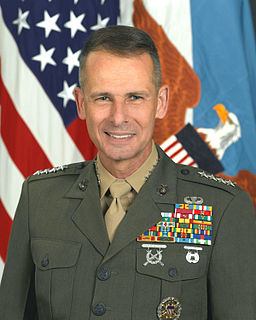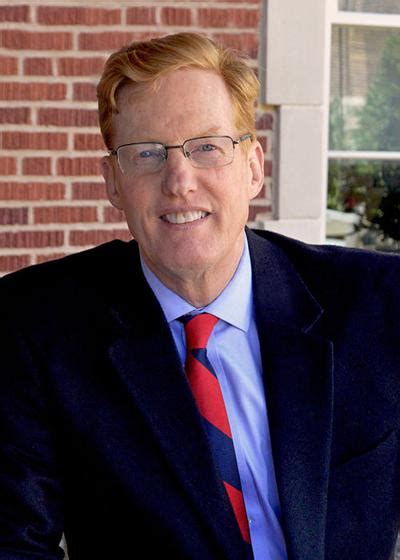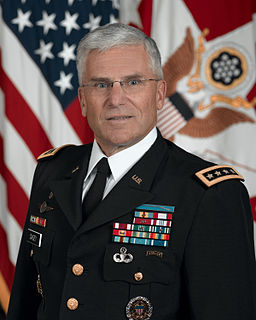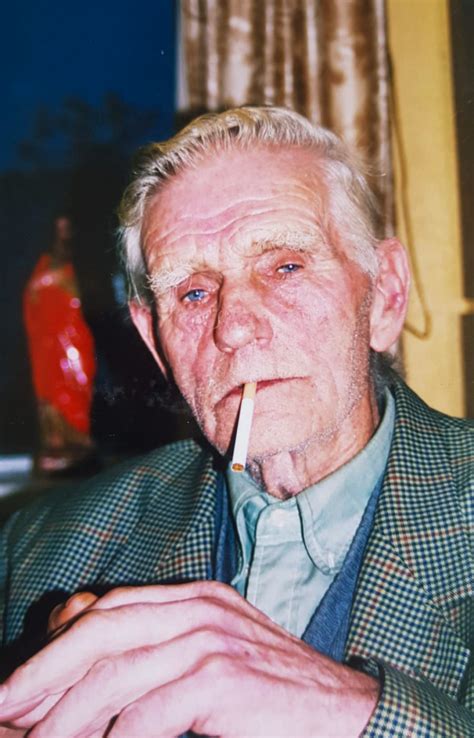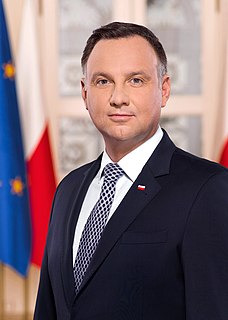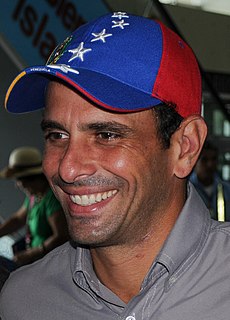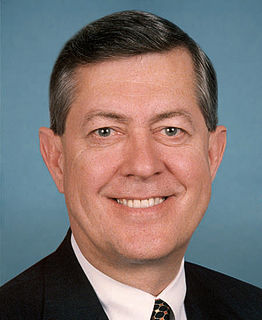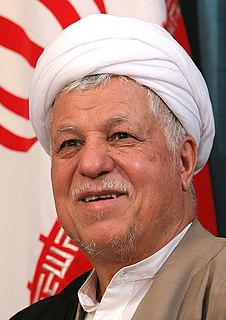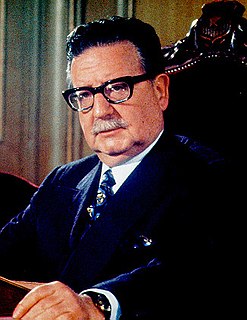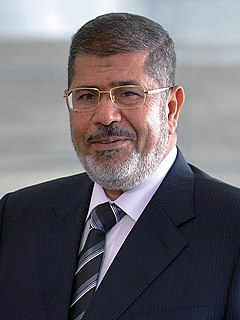A Quote by Peter Pace
We prefer that the leaders of the Iraqi armed forces do the honorable thing; stop fighting for a regime that does not deserve your loyalty.
Related Quotes
It's quite clear the Syrian regime in Syria, as the Iraqi regime in Iraq is benefiting from America's effort to destroy opposition forces in both countries. And there aren't any other rebel forces that one can foresee on the horizon that will be able to take Eastern Syria that's now occupied by ISIS.
In addition to declaring and destroying all of its weapons of mass destruction, Iraq must end its support for terrorism. It must cease the persecution of its civilian population. It must stop all illicit trade outside the oil-for-food program. And it must release or account for all Gulf War personnel, including an American pilot, whose fate is still unknown. By taking these steps, and only by taking these steps, the Iraqi regime has an opportunity to avoid conflict. These steps would also change the nature of the Iraqi regime itself. America hopes the regime will make that choice.
So here's a question from one who believed, only a week ago, that Baghdad might just collapse and that we might wake up one morning to find the Baathist militia and the Iraqi army gone and the Americans walking down Saadun Street with their rifles over their shoulders. If the Iraqis can still hold out against such overwhelming force in Umm Qasr for four days, if they can keep fighting in Basra and Nasiriyah – the latter a city that briefly rose in revolt against Saddam's regime in 1991 – why should Saddam's forces not keep fighting in Baghdad?
This democracy... The elections in Iraq were held despite the American opposition. It was the will of the Iraqi people and the religious authorities. [The elections] were the result of pressure by Ayatollah Sistani, by the Iraqi religious authorities, and by the fighting forces in Iraq on America. They left the US no choice but to allow the elections.
I worked with the Nato Military Committee. The Head of the Luxembourg Armed Forces had equal standing with me, and I had to respect that. He was the leader of the armed forces of a sovereign country. I had to make sure he never thought that I was looking down on them, merely because they had less power than we did. With that kind of approach you can develop bonds of trust. I tried to do the same thing with my colleagues when I was Secretary of State.
